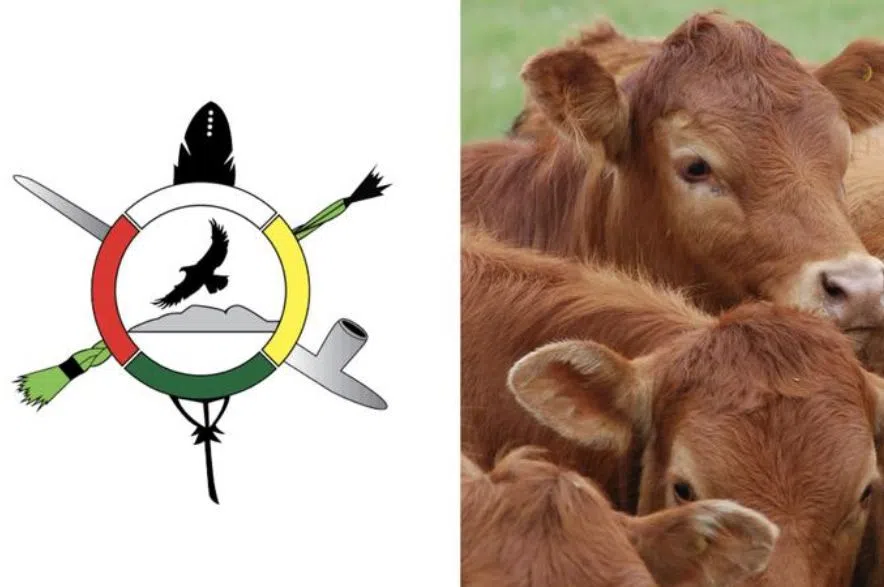On Red Pheasant Cree Nation, cattle have become such a constant — in the yards, in the ditches, even in the graveyard — that the community is now telling ranchers it needs a break. A long one.
After years of disputes, damage and overgrazed fields, the Nation has approved a two-year moratorium on cattle grazing that Chief Cody Benson said is long overdue.
Read more:
- Sask. keeps grazing rates for Crown lands frozen for 2024
- Drought support for farmers coming from provincial, federal governments
- Saskatchewan farmers receive boost in 2025 AgriStability support
“In the last two years since I’ve been elected, we’ve had situations with cattle owners,” Benson said.
“When they bring their cows, and then when it’s time to pick them up, there’s big disputes over who looks after whose cows.”
The scale of the problem is staggering. It’s estimated that about 1,000 to 1,500 pairs of cattle come into the community each year — far more than the reserve’s grasslands can sustain.
“There’s nothing for them to eat, there’s no grass, they’re eating dirt,” he said. “It’s not right.”
A decades-long issue reaches its breaking point
Benson said the community has been dealing with cattle-related issues for “probably the last 20 years,” but tensions have worsened in recent seasons.
He said the RCMP have been pulled into disputes between cattle owners, and chief and council often get drawn in as well — even though the Nation has no cattle operation of its own.
“It turns into a situation where now all of a sudden the band’s involved in the cattle stuff and there’s no direct connection with us with the cattle, other than it’s on our land,” he said.
“So at the end of the day, it turns into our problems.”
With pastures worn down, Benson said cattle have been wandering anywhere they can find food.
“A lot of these cattle are going into people’s yards,” he said. “They’re wrecking vehicles… they’re in our ditches… they’re going into our graveyards, like all over.”
‘We are not open for business’
The moratorium will take effect Nov. 12, 2025, and run until Dec. 31, 2027, giving the land a chance to regenerate while also easing pressure on the community. All cattle must be removed within 60 days of the start date.
Benson said leadership wanted the announcement out early so ranchers cannot later argue that deposits or prior arrangements force them to bring cattle into the community.
“We want to let cattle people know that we are not open for business and ‘No, we don’t want cattle in our community,’” he said.
The Nation will meet with an RCMP livestock task force in January to discuss enforcement and clarify next steps.
Benson said the break is needed not just for the land, but for the community itself.
“We just need to take a break and reevaluate everything.”











